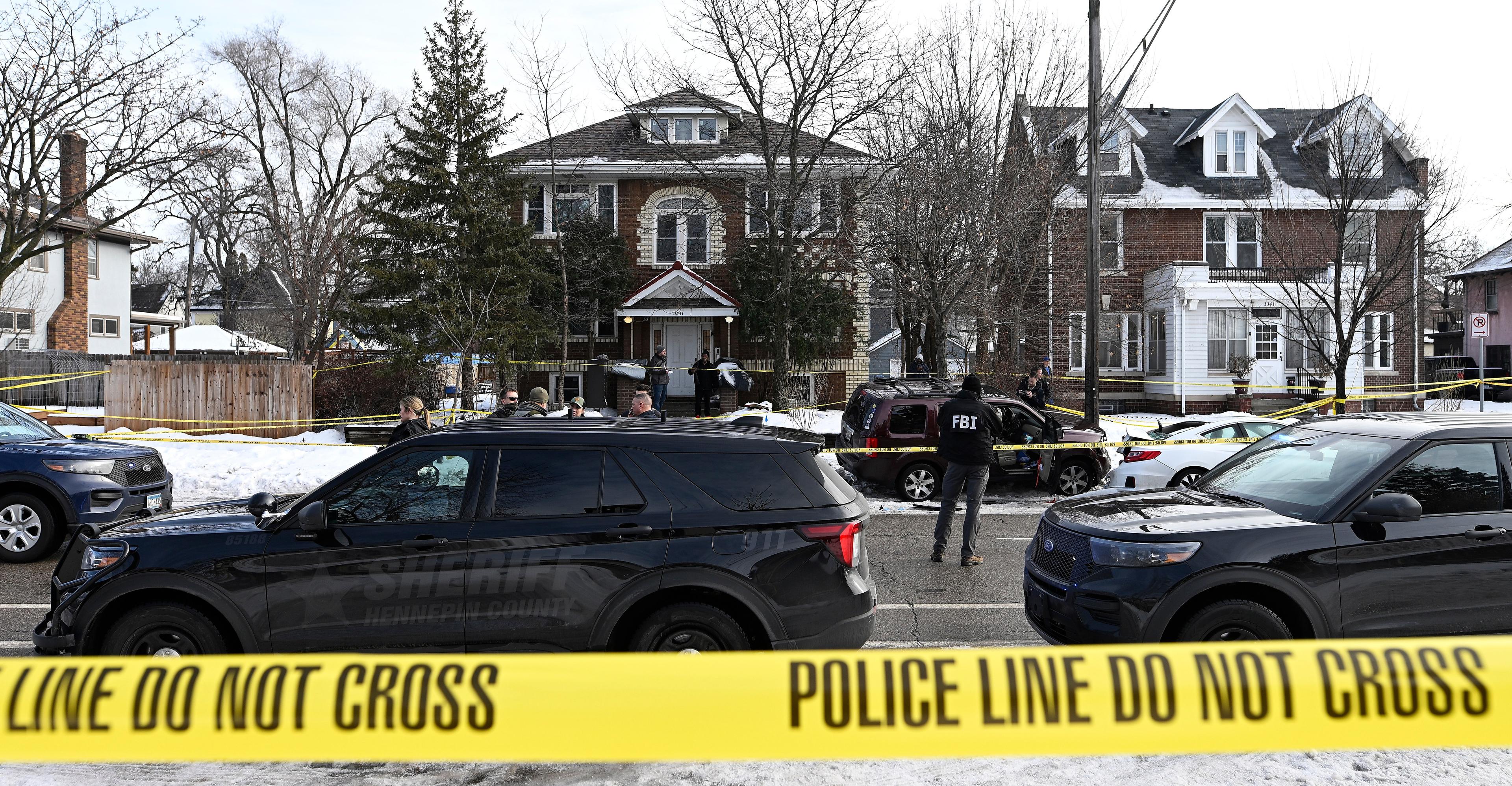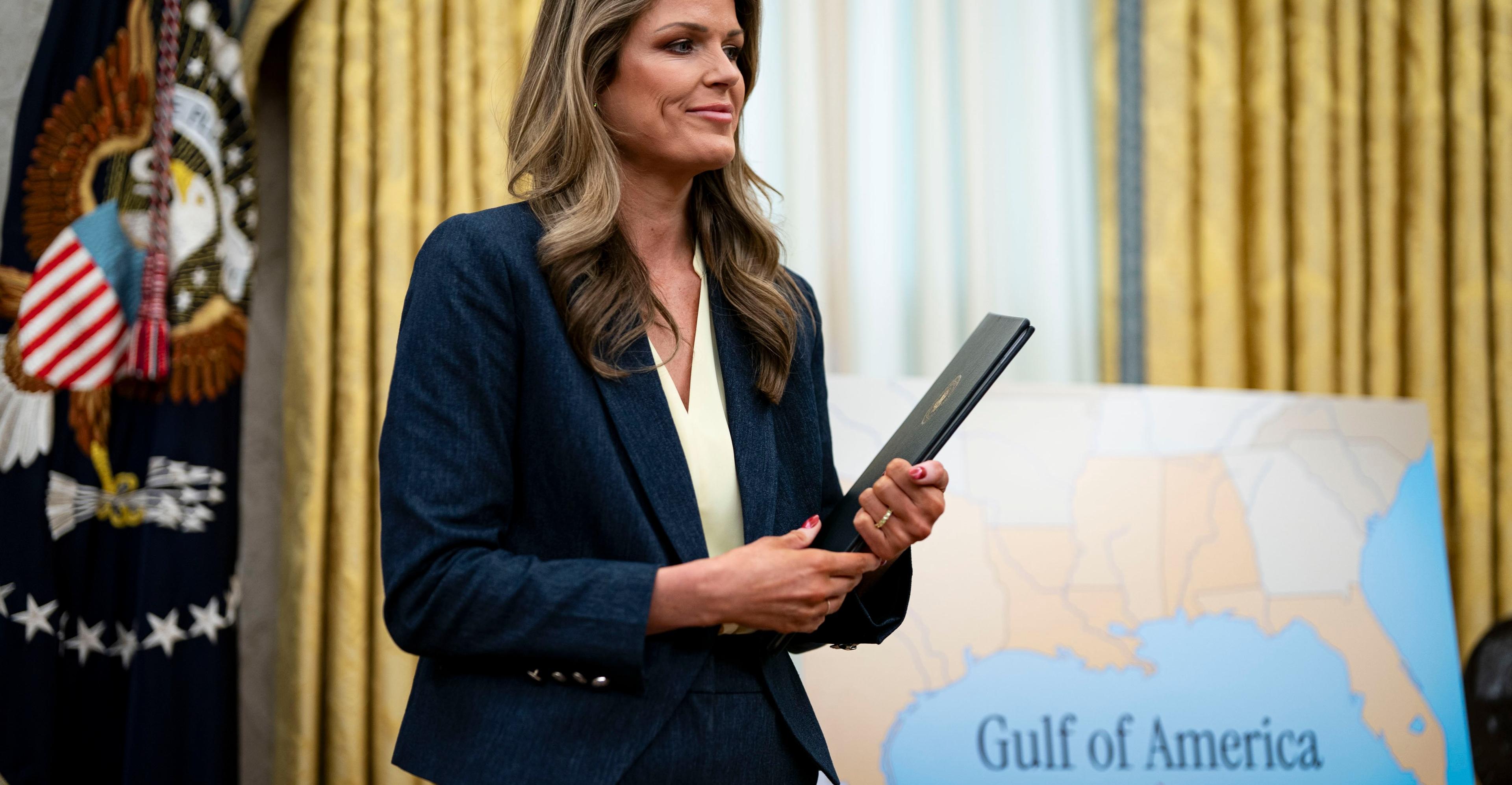Free cancer treatment for all — and 5 other ideas to transform global health
In a year marked by devastating cuts to aid and horrible humanitarian crises, global health and development progress is at risk of backsliding. But then, there are those who refuse to cave in. Tackling global health from new perspectives, these leaders have c…

Published 2 months ago on Nov 20th 2025, 7:00 am
By Web Desk

In a year marked by devastating cuts to aid and horrible humanitarian crises, global health and development progress is at risk of backsliding. But then, there are those who refuse to cave in.
This story is part of the 2025 Future Perfect 25
Every year, the Future Perfect team curates the undersung activists, organizers, and thinkers who are making the world a better place. This year’s honorees are all keeping progress on global health and development alive. Read more about the project here, and check out the other categories:
* Innovators
* Movers and Shakers
* On the Ground
Have ideas for who should be on next year’s list? Email us at futureperfect@vox.com.
Tackling global health from new perspectives, these leaders have channeled their expertise to create lasting impact. Their work spans high-stakes arenas, from pioneering massive new commitments to women’s health to preventing biodefense failures. Others have steered national health system transformations — including making cancer treatment free for all. Then, there are those who are rebuilding war-torn nations, when attention has been diverted elsewhere. They are united by a deep-seated, strategic commitment to addressing child mortality and poverty and by their determination to make progress in the face of a perpetually challenging world. — Izzie Ramirez, deputy editor
Ms. Rachel
[Image: https://platform.vox.com/wp-content/uploads/sites/2/2025/11/Vox_FuturePerfect25_Ms-Rachel_MarHernandez.jpg?quality=90&strip=all]
If you’re a parent, teacher, or cool aunt, you’ve probably heard of Ms. Rachel. She’s every toddler’s favorite YouTuber.
Informed by her (two!) master’s degrees in music and early childhood education, Rachel Accurso started making singalong videos for her son back in 2019. He had a speech delay, and Accurso knew there was a gap in useful but fun content for kids like her son. Her finger was on the pulse. Her channel, originally named Songs for Littles, transformed into a global phenomenon. Some 13 billion views later, the Ms. Rachel cinematic universe now encompasses books, a fast-selling toy line, and a top-rated Netflix series.
[Image: https://platform.vox.com/wp-content/uploads/sites/2/2025/11/PullQuote_MsRachel.png?quality=90&strip=all]
It could have been easy for Accurso to focus only on making positive videos — the ones that toddlers can’t stop dancing along to. She didn’t. On her other social media platforms, Accurso has a direct line to caregivers and adults — and she uses it to advocate for the most disadvantaged.
Accurso has consistently used her immense platform to champion causes often avoided by public figures, speaking openly about her personal struggle with postpartum depression and brushing off conservative backlash for posting a Pride Month message last year.
Perhaps none is more moving than her unwavering commitment lately to kids in Gaza, where the malnutrition crisis — caused by Israel’s brutal military campaign and continued reluctance to allow consistent aid into the enclave — has now reached “catastrophic” levels, according to UNICEF. There, more than 320,000 children are at risk of acute malnutrition. “Please look at her eyes for one minute,” she said in one video earlier this year, pointing to a picture of an incredibly malnourished baby, Siwar Ashour, whose haunting stare became emblematic of the crisis in Gaza. She also featured Rahaf, a three-year-old double amputee, and sang with her on one of her videos. Critics accused her of not “caring for all kids” after she raised more than $50,000 for Save the Children’s Emergency Fund for kids in Gaza, Sudan, and Ukraine, among others. But she refused to relent.
[Image: https://platform.vox.com/wp-content/uploads/sites/2/2025/11/Movers_PullQuote-12.png?quality=90&strip=all]
“I have to just remind myself that kids’ lives are more important than my reputation,” she told Glamour’s Samantha Barry last month.
She’s right. We cannot have a better, healthier future without considering the well-being of children. Food, water, shelter, education, and access to medical care are all basic needs that are crucial for human development, especially in those first few years of life. Accurso forces us to extend that urgency to every child.
“As an educator, you care about every child in your class,” she told Mohammed R. Mhawish, a journalist who escaped Gaza with his son, in June. “I’ve taught children from so many places and so many backgrounds. They all want to play, to learn, to laugh, and to belong. They are all innocent and precious. And geography does not change that.”
Anita Zaidi
[Image: https://platform.vox.com/wp-content/uploads/sites/2/2025/11/Vox_FuturePerfect25_AnitaZaidi_MarHernandez.jpg?quality=90&strip=all]
It has not been an easy year for women and girls around the world. Cuts to global aid threaten to unravel decades of progress in getting girls to school, keeping mothers safe, and bringing women into positions of power.
But there is one reminder that helps Anita Zaidi, head of the Gates Foundation’s gender equality division, maintain what she calls relentless optimism: We’ve come so far.
“I get a lot of energy from looking at how much women have achieved over the last 100 years,” she told me last year. “Who would have thought that we would have gotten to where we are now?”
[Image: https://platform.vox.com/wp-content/uploads/sites/2/2025/11/Movers_PullQuote-13.png?quality=90&strip=all]
Zaidi, who is based in Seattle, is a pediatrician by training. She began her career fighting early child mortality in a small fishing village in Pakistan, her home country, eventually winning a $1 million prize to address malnutrition, improve vaccine and primary health care access, and train midwives and community health workers.
Over the past few decades, Zaidi has pioneered highly successful interventions that take seriously the idea that poverty, at its core, is sexist, and solving global health issues means taking into account entrenched gender dynamics and the role of women from the start.
Now, she has a lot more money to make that happen. In August, the Gates Foundation announced a new $2.5 billion commitment for research and development to improve women’s health around the world. We’re talking high-tech portable ultrasound devices, contraceptive patches that could be a game-changer for family planning, and simple postpartum hemorrhage drapes that can make giving birth much safer.
In other words, Zaidi still has plenty to be optimistic about. Investing in women’s health is “not just the right thing to do,” she told PBS, but “a tremendous opportunity for coming up with new solutions in a very exciting area of science.” —Sara Herschander, Future Perfect fellow
Caitlin Tulloch
[Image: https://platform.vox.com/wp-content/uploads/sites/2/2025/11/Vox_FuturePerfect25_CaitlinTulloch_MarHernandez.jpg?quality=90&strip=all]
After the White House began dismantling the United States Agency for International Development (USAID) early this year, it would have been easy for Caitlin Tulloch to throw up her hands in despair. Instead, the California-based economist did a very economist-y thing: She went to ForeignAssistance.gov and downloaded a spreadsheet.
This spreadsheet was a master list of all the 22,000-plus programs that USAID was funding. Tulloch realized that by filtering these programs to find the most cost-effective ones, she could direct interested donors to focus on funding them, thereby saving as many lives as possible.
She and her colleagues created Project Resource Optimization (PRO) to do exactly that. Soon, they’d narrowed it down to a few dozen programs — offering malnutrition treatment, safe water access, and more — that they labeled “urgent and vetted.”
In September, PRO announced, “More than $110 million has been mobilized, ensuring continued delivery of life-saving aid to an estimated 41 million people across more than 30 countries…Given the way these programs are targeted, a large proportion of those reached will be children under the age of five.”
What Tulloch did reminds me of a Leonard Cohen song — the one that urges us, “Ring the bells that still can ring / Forget your perfect offering.” We can’t perfectly fix every problem in the world. But we can still make the world a better place for some. At a time when many Americans were just struck dumb, Tulloch rang the bells that still can ring. — Sigal Samuel, senior reporter
Elizabeth (Beth) Cameron
[Image: https://platform.vox.com/wp-content/uploads/sites/2/2025/11/Vox_FuturePerfect25_BethCameron_MarHernandez.jpg?quality=90&strip=all]
In August, biosecurity expert Beth Cameron co-authored a piece for The Atlantic called “No One in the White House Knows How to Stop Ebola.” She’s right. And there is currently still no one in the White House focused on biodefense.
This is a tremendous problem because biological threats don’t wait for a change of administration. We need competent people constantly playing defense.
Cameron would know. She’s spent decades in and out of government playing a pivotal role in global health security efforts. She established and led the National Security Council’s biosecurity office after the 2014 Ebola epidemic. Trump terminated it in his first term, but Cameron reestablished and led it under the Biden administration. She helped oversee the US global response to the COVID-19 pandemic. Her work was pivotal to launching the Global Health Security Agenda, a public-private partnership to defend against biological threats, as well as numerous other biosecurity initiatives. She served as the global health security consultant for the dearly departed USAID.
She also founded NTI | bio, an influential arm of the Nuclear Threat Initiative think tank focused on biosecurity (and, disclosure: my former employer, although unfortunately we didn’t overlap).
Her current work as the senior advisor at the Brown University Pandemic Center is charting the course for a safer future as governments are backing down from their responsibilities on the health security front. She knows that it takes moments to destroy what it takes years to build — funding cuts have decimated America’s biosecurity infrastructure — but she’s not giving up. She’s got a mind for strategy, extensive experience, and a deep commitment to protecting the world from biological risks.
“When you’re in the middle of a crisis and you have to ask for money, you’re already too late,” Cameron told 80,000 Hours, a career guidance nonprofit, in a 2017 podcast interview on pandemic preparedness. “Countries really need to be able to quickly detect and stop outbreaks at the source before they become epidemics. … we really need to be much better prepared to respond in real time than we were during the Ebola outbreak in West Africa.” — Shayna Korol, Future Perfect fellow
Raed Al-Saleh
[Image: https://platform.vox.com/wp-content/uploads/sites/2/2025/11/Vox_FuturePerfect25_Raed-Al-Saleh_MarHernandez.jpg?quality=90&strip=all]
Raed al-Saleh has spent over a decade rescuing Syrians from the rubble in the aftermath of brutal bombings.
A co-founder of the famed White Helmets — a search and rescue organization that formed as a grassroots volunteer-led response to the Syrian civil war — al-Saleh stood before the United Nations pleading for that work to end last December. He slammed the international community for having “utterly failed” Syrians after nearly 14 years of war. “I truly dream that our work of pulling bodies from under the rubble will not continue,” he told AFP.
Just four days later, Syrian rebels overtook Damascus and the Assad regime collapsed, ending over half a century of brutal rule. But al-Saleh’s work of pulling people from rubble, which earned the White Helmets global acclaim, three Nobel Peace Prize nominations, and an Academy Award-winning short film, shows no sign of stopping.
As of March, al-Saleh is no longer head of the White Helmets, which dug over 100,000 Syrians out of the rubble and provided a range of other emergency services over the course of 11 years. He is now minister of environment, emergencies, and disaster management in a new Syrian government charged with rebuilding a nation ravaged by war.
As part of his new role, al-Saleh is tasked with battling wildfires, clearing land mines, and repairing roads across the country, and his over 3,000 now salaried White Helmets have been formally absorbed into the country’s emergency response force. The transition won’t be easy. According to NPR, Al-Saleh now oversees a firefighting force in which White Helmets and Assad-era first responders slide down separate poles of the firehouse into the same fire truck, responding to emergencies side by side.
But it’s been over a decade since al-Saleh left his pre-war job as an electronics salesman to help build the White Helmets from the ground up. And he has no plans to go back to his day job anytime soon. —Sara Herschander, Future Perfect fellow
Sabin Nsanzimana
[Image: https://platform.vox.com/wp-content/uploads/sites/2/2025/11/Vox_FuturePerfect25_Sabin-Nsanzima_MarHernandez.jpg?quality=90&strip=all]
Inside a tin mine in Rwanda, a fruit bat infected a worker with the deadly Marburg virus in September 2024. It was the country’s first case of the highly contagious virus, a relative of Ebola, and initially, global health officials feared for the worst.
But by December, something remarkable had happened. In just three months, Rwandan health officials — led by Sabin Nsanzimana, the country’s minister of health — made one of the largest Marburg outbreaks ever disappear.
How? Over the past three decades, Rwanda, a country once ravaged by genocide, has managed to pull off a wholesale transformation of its health care system. After years spent prioritizing health spending, and after building over 1,000 new health posts and a community-based insurance program, almost every Rwandan now has health coverage. Life expectancy has shot up by 26 years. Child mortality has plunged by nearly 78 percent since the turn of the century. It used to take most rural Rwandans more than an hour to reach the nearest health facility on foot, but thanks to a surge in new locations, most can now get the help they need in less than 30 minutes.
The country has also become a model in global cancer care, and just this summer, Rwanda’s community-based health insurance program began making cancer treatments free.
So by the time the Marburg virus broke out, Rwanda was ready. It took Nsanzimana just 10 days to roll out an emergency vaccine trial for the virus. The country mounted a contact-tracing and surveillance response so quickly that doctors have wondered what could’ve been different had the world responded to Covid-19 with the same urgency.
The threat of the Marburg virus has passed, but Nsanzimana says the country’s health care revolution is far from over. Next on his list is eradicating cervical cancer by 2027, dramatically expanding the medical workforce, and achieving universal health insurance coverage by 2030.
And if he could beat Marburg in three months, he might just be able to pull it off. —Sara Herschander, Future Perfect fellow
Jags top trolls with 'small-market' reference
- 6 hours ago
Bangladesh players act normal despite controversies, says Shanto
- 14 hours ago
Pakistan Navy ships visit Port Sultan Qaboos
- 16 hours ago
Offseason guide for eliminated NFL teams: Key free agents, draft outlook and more
- 6 hours ago
Bob Weir, Grateful Dead co-founder and rhythm guitarist, dead at 78
- 14 hours ago

Foreign remittances hit record high of $3.6bn in December
- 16 hours ago

Preparing youth for digital economy: inside Pakistan’s wealth university
- 16 hours ago
Mainly cold, dry weather expected in most parts: Met Office
- 16 hours ago
Iran warns Washington it will retaliate against any attack
- 16 hours ago
Barnwell makes his NFL award picks: Ranking candidates for MVP, Rookie of the Year, more
- 6 hours ago
Islamabad: Cylinder blast in wedding house leaves eight dead, 11 hurt
- 15 hours ago
Pakistan reiterates support for Somalia's sovereignty, integrity
- 12 hours ago
You May Like
Trending










